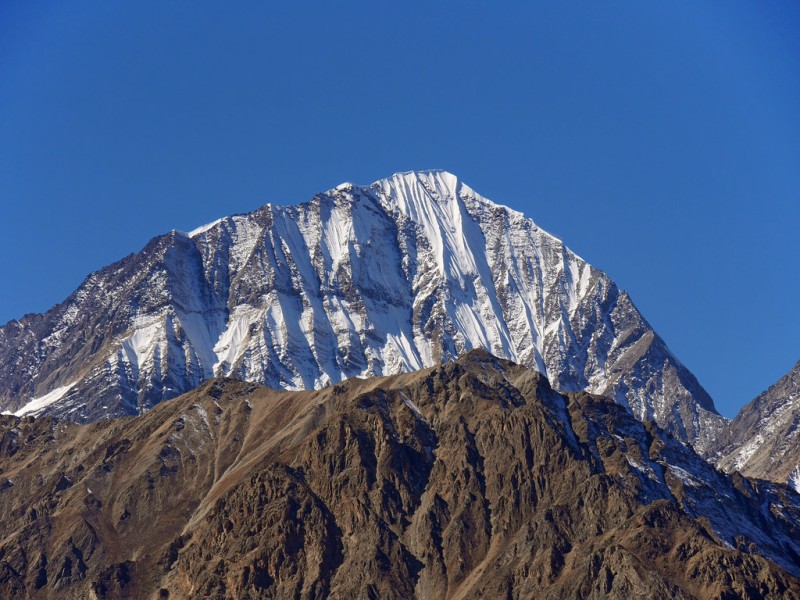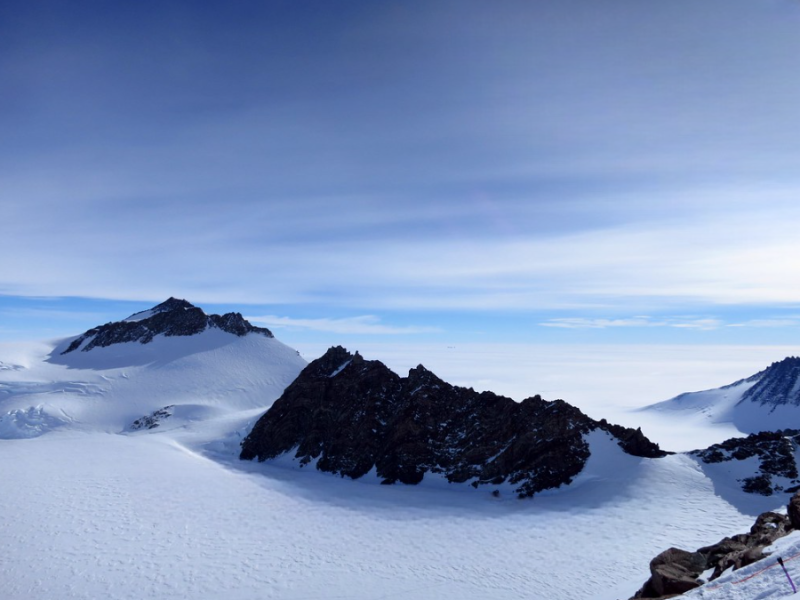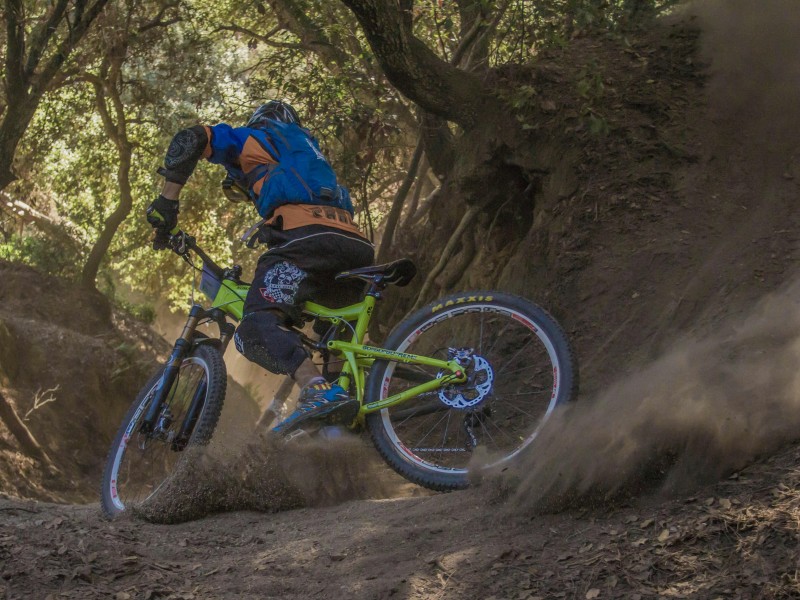Mount Elbrus, towering at 5,642 meters (18,510 feet) above sea level, is Europe's highest peak, situated in the majestic Caucasus mountain range within the Kabardino-Balkaria region of Russia. Renowned for its striking twin summits—the Western Summit and the slightly taller Eastern Summit—Mount Elbrus stands as a beacon for mountaineers and adventurers worldwide, offering bot...
Mount Elbrus, towering at 5,642 meters (18,510 feet) above sea level, is Europe's highest peak, situated in the majestic Caucasus mountain range within the Kabardino-Balkaria region of Russia. Renowned for its striking twin summits—the Western Summit and the slightly taller Eastern Summit—Mount Elbrus stands as a beacon for mountaineers and adventurers worldwide, offering both a formidable challenge and an immensely rewarding experience. The mountain’s glaciated slopes, dominated by the immense Greater Caucasus Glacier, present a dramatic landscape that captivates and inspires. As climbers ascend, they are greeted by stunning alpine vistas, a testament to the raw and unspoiled beauty of this natural wonder. The journey to the summit is not merely a physical endeavor but also a spiritual and emotional pursuit, as the mountain’s grandeur evokes a profound connection with the natural world.
While Mount Elbrus is considered a non-technical climb by mountaineering standards, it requires a solid understanding of high-altitude trekking and glacier travel. Climbers must be proficient in the use of crampons, ice axes, and ropes, particularly when navigating the icy slopes and crevasses that characterize the ascent. The climb demands physical endurance, as well as mental resilience, to withstand the often harsh weather conditions, including high winds and freezing temperatures. Acclimatization is a critical aspect of the expedition, as the significant elevation can pose risks of altitude sickness. Proper preparation, including prior high-altitude experience, is strongly recommended to safely and successfully reach the summit. Despite the mountain's relatively accessible routes, the conditions on Mount Elbrus can change rapidly, and climbers must be prepared for the technical challenges that may arise, especially near the summit where the slopes steepen.
Mount Elbrus is not just distinguished by its towering height but also by its rich historical and cultural significance. It has long been a symbol of endurance and exploration, drawing explorers from different epochs who have been compelled by the mountain’s enigmatic presence. The ascent offers a journey through time, as climbers traverse ancient landscapes shaped by millennia of geological activity and human history.
The mountain’s allure lies in the combination of its majestic beauty, challenging conditions, and the sense of accomplishment it offers to those who reach its summit. Whether viewed from afar or experienced up close, Mount Elbrus remains an unparalleled destination, embodying the spirit of adventure and the timeless appeal of exploration.
- Nearest Airport: Mineralnye Vody Airport (MRV)
- Transportation: Ground transfers from Mineralnye Vody to the Elbrus region
- Accommodation: Mountain huts (refuges) or tents during the ascent; hotels in the nearest town, Terskol, or the Elbrus region
- Location / Mountain Range: Kabardino-Balkaria, Russia / Caucasus Mountains
- Elevation / Summits: Western Summit 5,642 meters (18,510 feet) and Eastern Summit (5,621 meters)
- Expedition Duration: 9 to 14 days (including acclimatization and summit attempt)
- Route: South Route (most popular), North Route, and the less frequented West Route.
- Technical Difficulty / Grade: Intermediate (due to altitude, glacial terrain, and variable weather conditions) / Non-technical, but physically demanding (requires the use of crampons, ice axe, and ropes)
- Weather: Unpredictable; temperatures can range from +10°C to -20°C at higher altitudes, with strong winds and potential for snowstorms
- Acclimatization: Essential; recommended prior high-altitude experience
- Average Summit Day: 8 to 12 hours round trip
- Permit: Required; must be obtained before the climb
- Guides: Certified mountain guides due to the challenging conditions
- Safety Considerations: Altitude sickness, weather changes, and crevasses; climbers should be well-prepared and equipped
- Climbing Season: June to September
- Summit the Highest Peak in Europe: Conquer Mount Elbrus, standing at 5,642 meters (18,510 feet), the tallest peak in Europe and one of the prestigious Seven Summits. Reaching the summit is a significant milestone for any mountaineer, symbolizing endurance, skill, and the culmination of months of training and preparation.
- Breathtaking Panoramic Views: Experience unparalleled 360-degree views from the summit, offering sweeping vistas of the entire Caucasus mountain range, including the dramatic peaks of Ushba, Shkhara, and Kazbek. On clear days, the horizon extends to the Black Sea and even the Caspian Sea, providing a visual feast that makes the arduous climb worthwhile.
- Iconic Twin Summits: Explore the mountain’s distinctive twin summits—Western (5,642 meters) and Eastern (5,621 meters). While most expeditions target the Western Summit, the Eastern Summit offers an alternative challenge for those seeking an even more adventurous experience.
- Glacial Landscapes: Traverse the expansive Greater Caucasus Glacier, one of the largest glacial systems in the region. The journey across this frozen expanse presents opportunities to witness intricate crevasse formations and icefalls, underscoring the raw power of nature. The glacier’s constantly shifting landscape adds a dynamic element to the climb, requiring vigilance and skill.
- Acclimatization Treks: Enjoy carefully planned acclimatization hikes to nearby peaks like Cheget (3,600 meters) or Pastukhova Rocks (4,800 meters). These treks are not only vital for acclimatization but also offer stunning views of Mount Elbrus and the surrounding valleys, helping climbers adjust to the altitude and gain confidence in their abilities.
- Rich Cultural Experience: Immerse yourself in the unique culture of the Caucasus region. Visit the local villages of Terskol and Azau, where you can explore traditional Balkarian architecture, experience local customs, and savor authentic regional dishes such as khychin (stuffed flatbreads) and shashlik (grilled meat skewers). The cultural exchange adds depth to the expedition, making it more than just a physical journey.
- Challenging but Accessible Climb: While Mount Elbrus is considered non-technical, the climb still demands a high level of physical fitness and familiarity with mountaineering equipment. The ascent involves steep snowfields and the use of crampons, ice axes, and ropes, particularly on the final push to the summit. The challenge is balanced by the fact that it remains accessible to climbers with basic mountaineering skills, making it an ideal introduction to high-altitude expeditions.
- Experienced Guides and Support: Benefit from the expertise of certified mountain guides with extensive experience on Elbrus. Their knowledge of the mountain’s terrain, weather patterns, and potential hazards ensures a safer and more successful climb. Support staff, including porters and cooks, enhance the overall expedition experience by taking care of logistics, allowing you to focus on the climb.
- Historical and Geographical Significance: Step onto a mountain steeped in history and lore. Mount Elbrus has been a symbol of exploration since the 19th century, attracting climbers from around the world. Its location at the crossroads of Europe and Asia adds a unique geopolitical dimension to the expedition, as you traverse landscapes that have been shaped by diverse cultures and historical events.
- Remote Wilderness Adventure: Experience the solitude and tranquility of the high Caucasus, far from the hustle and bustle of modern life. The expedition takes you through remote, pristine wilderness, offering a true escape into nature. Nights spent in mountain huts or tents under the stars provide a serene contrast to the challenging ascent.
- Achieve a Personal and Team Milestone: Whether you’re a seasoned mountaineer or an ambitious adventurer, summiting Mount Elbrus represents a significant personal achievement. The sense of accomplishment is amplified by the camaraderie developed within the team, as you overcome the physical and mental challenges of the climb together.
- Safety and Environmental Stewardship: Participate in an expedition that prioritizes safety and environmental stewardship. Mount Elbrus, being a part of the Caucasus Biosphere Reserve, requires climbers to adhere to strict environmental guidelines to minimize impact on the fragile alpine ecosystem. Your journey contributes to the preservation of this unique natural environment.
- Arrival & Departure Transfers: Convenient pick-up and drop-off services from Mineralnye Vody Airport to your hotel in Terskol, and vice versa. This ensures a seamless start and finish to your journey.
- Expert Guides: Professional and experienced mountain guides who are well-versed in the routes and conditions of Mount Elbrus. They provide essential guidance, training, and support throughout the expedition to ensure a safe and successful climb.
- Hotel Accommodation in Terskol: Enjoy 4 nights of accommodation in Terskol on a bed-and-breakfast basis. Rooms are twin-shared, providing comfort and relaxation before and after the climb.
- Transportation: All necessary transportation for clients and staff as per the itinerary is included. This covers transfers within the Baksan Valley, transportation to the Azau cable car station, and other logistics.
- Permits & Fees: All required permits and fees for the expedition, including the Mount Elbrus climbing permit, are taken care of, allowing you to focus solely on your adventure.
- Accommodation in Special Huts on Elbrus: 4 nights of accommodation in specially designated mountain huts on Mount Elbrus. These huts are strategically located to aid in acclimatization and provide shelter during the ascent.
- Waste Management: Comprehensive waste management services, including stool shipment transfer and garbage deposit fees, are included. This ensures that the expedition adheres to environmental guidelines, minimizing the ecological impact on the mountain.
- Staff Remunerations and Allowances: All wages, equipment, food, clothing, and personal insurance for the expedition staff, including guides and porters, are fully covered. This ensures that the team is well-equipped and motivated to support the climb.
- Food & Lodging: Major meals are provided during the trekking phase and at Base Camp for both clients and staff. This includes nutritious and hearty meals designed to fuel your climb.
- Visa Invitation (if needed): Depending on your nationality, a visa invitation letter may be required to obtain a Russian visa. This service is included in the package to assist with your visa application.
- Cable Car Return Ticket: The cost of the return cable car ticket from Azau to the high-altitude hut is included, facilitating a smooth ascent to the higher elevations of Mount Elbrus.
- International Airfare: Flights to and from Mineralnye Vody (MRV) are not included in the package. Participants are responsible for arranging their own international travel to Russia.
- Russian Visa: The cost and processing of the Russian visa are not included. Participants must obtain their visa independently, though a visa invitation letter (if needed) is provided.
- Moscow Services: Any services in Moscow, including accommodation, transportation, and tours, are not covered by the expedition package. These must be arranged separately if required.
- Single Supplement in Hotel: A single supplement for those preferring a private room in the hotel is not included. This can be arranged for an additional fee.
- Individual Car Transfers: Private car transfers outside of the group itinerary are not included. These services can be arranged at an extra charge upon request.
- Personal Equipment Rentals: The rental of personal mountaineering equipment such as crampons, ice axes, and climbing boots is not included. Participants should bring their own gear or rent it from local suppliers.
- Personal Guides for Summit Day: The service of personal guides for the summit day, if desired, is not included. This can be arranged for an additional cost, providing one-on-one support during the ascent.
- Insurance: Travel insurance, high-altitude insurance, accident insurance, medical insurance, and emergency evacuation coverage are not included. Participants must arrange their own comprehensive insurance policies.
- Snow Cat Service on Summit Day: The optional Snow Cat service to 4,800 or 5,100 meters on summit day is not included. Payment for this service must be made in cash (Rubles) on the spot. Prices vary based on the elevation and day rate.
- Assistant Guides on Reserve Day (Day 07): The services of assistant guides on the reserve day (Day 07) are not included. If the first summit attempt (Day 06) was initiated but aborted, the cost of assistant guides on Day 07 must be paid in cash, unless the weather on Day 06 was completely unsuitable for climbing.
- Program Changes Initiated by the Client: Any modifications to the itinerary or services initiated by the client will incur additional costs, which are not covered by the original package.
- Tips for Guides and Staff: Gratuities and tips for the climbing guides and support staff.
- Extras: Any services not explicitly mentioned under "Services Included."
This version of the cost inclusions and exclusions provides a clear, detailed, and professional outline of what is and isn’t covered in the expedition package, helping participants to plan and prepare effectively.
Related Packages
Copyright ©2025 All rights reserved | Xtreme Climbers Treks and Expedition - Your Adventure Partner in Nepal






























































































































